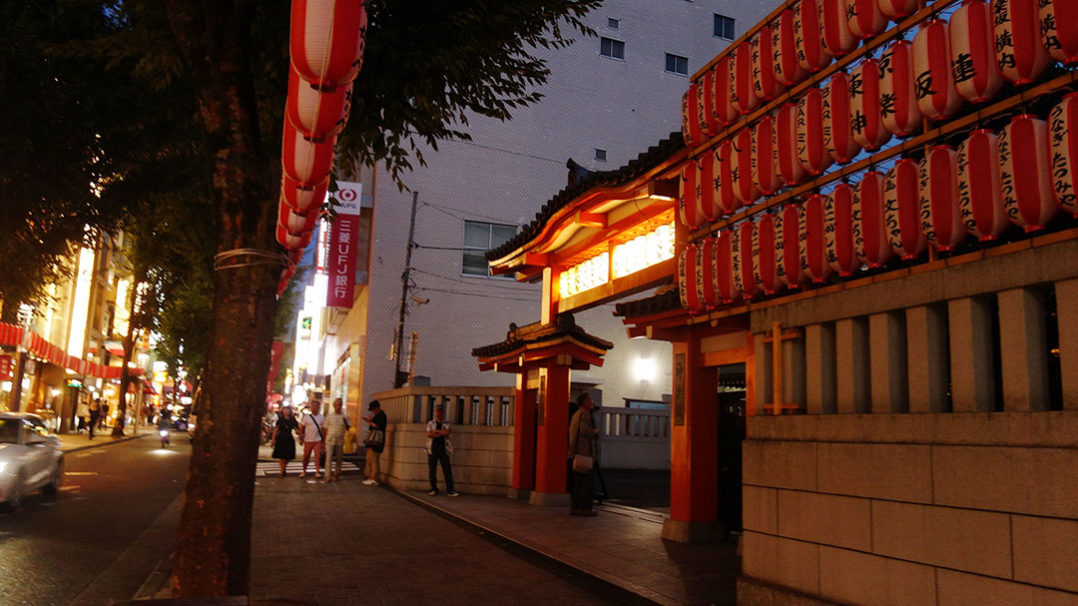
In the Edo priod(1603~1868) , Kagura-zaka had many Samurai villas and Tokugawa-related temples. Temples had, so to speak, extraterritorial right. In Gyogenji temple, there were market and geisha quarter. Narrow and winding lanes are likely the traces of its history.
It had been the renowned geisha district(entertainment area)through the Meiji( 1968-1912),Taisho(1912~1926),Showa(1926~1989) period.
On the back street, we occasionally hear the tone of the Shamisen.
Now, many nice small-sized restaurants are moved in this area. Not only Japanese bars but also French or Italian restaurants are there.
The overseas travelers would see the good old Japaneseness as well as the modern one in “human-scaled” Kagura-

